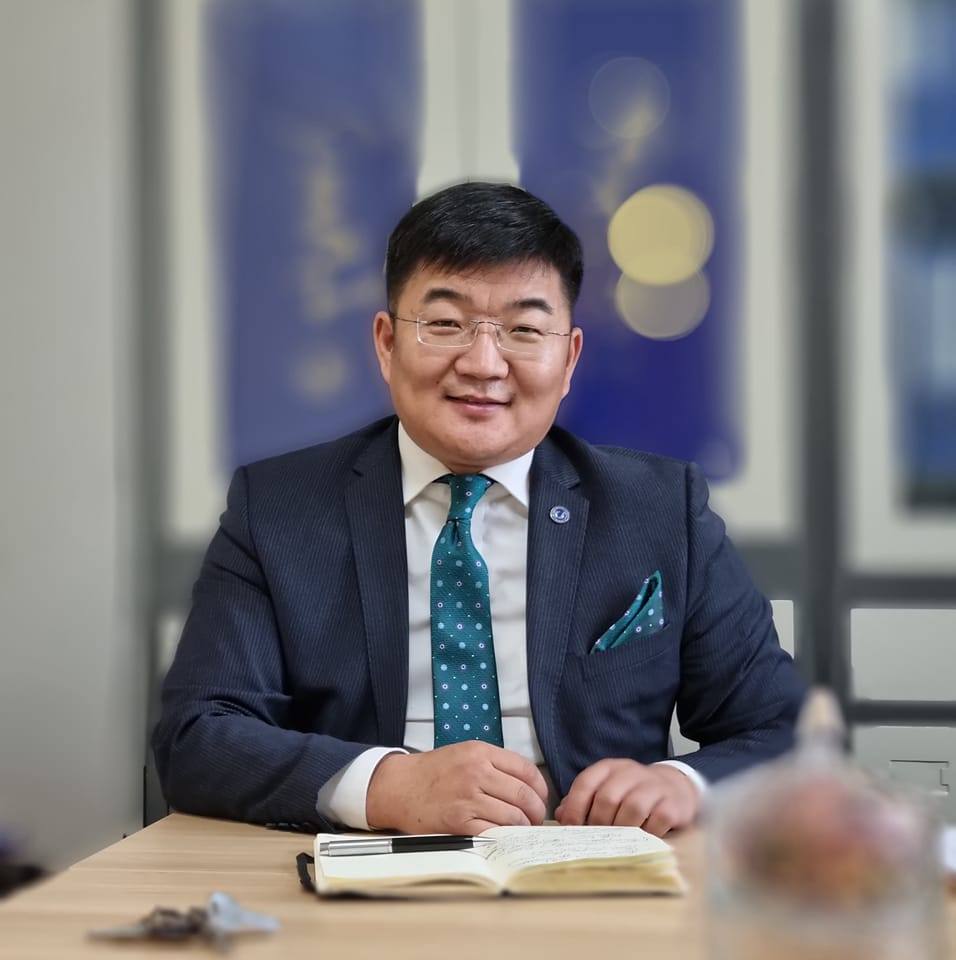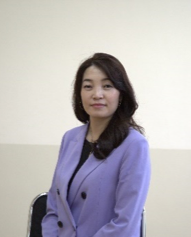- HISTORY OF THE DEPARTMENT OF PSYCHOLOGY:
- The National University of Mongolia's education system began in 1951 with the establishment of the State Teachers' Institute (STI), which initially housed a single classroom dedicated to teaching psychology. From this point onwards, the teaching and study of psychology began.
- In 1957, the State Teachers' Institute was restructured into the State Pedagogical University (SPU) with ten departments, including one dedicated to "Psychology and Pedagogy." Noted scholar, psychologist, and professor D. Sanjjav opened the first course in "Psychology of Childhood" during the 1969-1970 academic year, laying the foundation for professional psychologists.
- In 1983, departments specializing in Psychology and Pedagogy were established, but they were merged in 1988 and disbanded in 1990.
- In 1991, the Faculty of Psychology was established, followed by the Department of Psychology and Research at the Center for Psychological and Educational Studies in 1993.
- Starting from 1992, the conditions for the professional development of psychologists were improved by opening courses in psychological theory, history, and methodology.
- In 1997, the Institute of Education was established within the National University of Mongolia, and the Psychology Department within this institute began training psychologists professionally.
- Since 2014, with the restructuring of the university's structure and educational methods, the department has been renamed the "Psychology Department" to reflect changes in the curriculum and teaching methods in psychology.
Aim of Psychology department: The aim of the Department of Psychology is to fulfill the university's mission, adhere to academic and ethical standards, pursue educational objectives, and ensure coherence between objectives. The department aligns its basic requirements with the standards of the bachelor's degree program in psychology, approved by the National Council for Standardization and Measurement, and incorporates the guidelines of the American Psychological Association (APA) in its curriculum. The "Psychological Studies" program is designed to produce professionals who possess the knowledge, skills, and attitudes necessary for ethical and effective work, contributing to individual and societal well-being.
- DEPARTMENT MEMBERS:
Currently, the department of psychology consists of a total of 13 faculty members, including 1 department head, 3 professors, 2 associate professors, and 10 lecturers.
For instance, members of the department are involved in decision-making and evaluating the department's activities at the management level of the Mongolian National University of Education. For example, Professor O. Myagmar serves in the Expert Council of MNUE, and Professor B. Tuya, Professor O. Myagmar, and Dr. D. Tserendondov work in the Academic Council of the School of Education of the MNUE.
- PROGRAMS INFORMATION;
Students and graduates: A research-based training program has been implemented since 1997 to enhance the utilization of research in all areas of public service. Up to now, over 600 professionals, including those with bachelor's, master's, and doctoral degrees, have been trained. In the last 5 years alone, 1200 undergraduate students, 110 master's students, and 17 doctoral candidates have been produced. During the academic year 2023-2024, 910 students are studying in the undergraduate research program, 76 in the master's program, and 44 in the doctoral program.
Courses offered to students:
- Bachelor's course in "Psychological Studies" (4 years, 122 credit)
- Bachelor's course in "Educational Psychology" (4 years, 146 credit)
- "School Psychologist" Career Advancement Program (1 year, 30 credit)
- Master's Degree course in Psychology (2 years, 35 credit)
- Doctoral Degree course in Psychology (3 years, 60 credit)
Leading research direction:
- Development and State of Mind of Mongolian Children: This research area focuses on understanding the psychological development, well-being, and status of children in Mongolia. It explores various factors that influence children's growth and development, including family dynamics, socio-economic factors, cultural influences, and educational systems.
- Principles and Methods of Psychological Counseling: This research area is dedicated to studying the principles, methodologies, and best practices of psychological counseling. It aims to develop effective counseling strategies and interventions to address diverse psychological issues and promote mental well-being in individuals and communities.
- INTERNATIONAL COLLABORATION:
Our department collaborates with various international institutions and universities, including the Mongolian State University of Education, Buryat State University, Hiroshima University of Education in Japan, Nagoya University, Dongbei University of Finance and Economics, Ural Federal University, Yakutsk State University of the Russian Federation, to conduct joint programs, research, and exchange programs in the field of educational research methodology.
- ACHIEVEMENTS:
- The Bachelor's program in "Psychology" (D031301) was accredited by the National Council for Accreditation of Teacher Education in May 2020, and the Higher Education Accreditation Commission accredited the doctoral program for a period of 5 years on June 9, 2020.
- In the MNUE faculty's educational program, the courses "Human Development Research" and "Educational Research" have been established and accredited by the ASIIN organization.
- The goal of enhancing the education, research, and academic achievements of MNUE faculty members began with the "100 Excellent Courses" initiative launched in 2017. In the academic years 2017-2018, the courses "Human Development Research" and "Educational Policy Management" underwent rigorous evaluation from the respective departments. OUR department underwent a 3-year development phase (2015-2018) based on the outcome of the accreditation and evaluation of the top 5 departments at MNUE.

- Surname: Ganbat
- Name: Galsanjamts
- Work position: lecturer
- Specific major: Psychologist
- Educational degree: Ph.D
- Research Priorities:
-Management psychology
-Organizational psychology
-Forensic psychology - Main course taught:
-Management psychology
-Organizational psycholog
-Forensic psychology
-General psychology
-Educational psychology

- Surname: Dorjminchin
- Name: Delgermaa
- Work position: lecturer
- Specific major: Psychologist
- Educational degree: Ph.D
- Research Priorities:
- Social psychology
-Educational psychology
-Differential psychology
-Communication psychology
-Historical psychology

- Surname: Orosoo
- Name: Tungalag
- Work position: Senior lecturer Educational degree, title : Doctor of Philosophy (Ph.D.)
- Specific major: Psychologist
- Research priorities:
-Child psychology
-Educational psychology
-Professional Ethics
-Clinical Psychology
-Communictaion Psychology - Main course taught:
Bachelor’s degree:
-Ethics for Professional Psychologists
-Clinical Psychology
-Sports Psychology
-Educational psychology
-Psychology of social works
Master’s degree
-Contemporary Problems of communication psychology
-Psychology of Learning
Doctor’s degree
-Contemporary Approach of Educational psychology

- Surname: Baasankhuu
- Name: Enkmaa
- Work position: Senior lecturer
- Specific major: Psychologist, lecturer
- Educational degree: Ph.D
- Research Priorities:
-Psychophysiology
-Health psychology
-Psychology of innovative education
-The psychological foundations of career choice throughout life - Main course taught:
- Psychophysiology
- Health psychology
- Educational psychology
- General psychology
- Methodology of teaching psychology
- Surname: Shiirev
- Name: Batbold
- Job classification: lecturer
- Profession: Psychologist
- Educational degree: MA
- Research Priorities: : Personality theories, Developmental psychology, Social psychology
- Lessons taught: Personality theories, Developmental psychology, Social psychology, Work psychology, General psychology, Educational psychology.